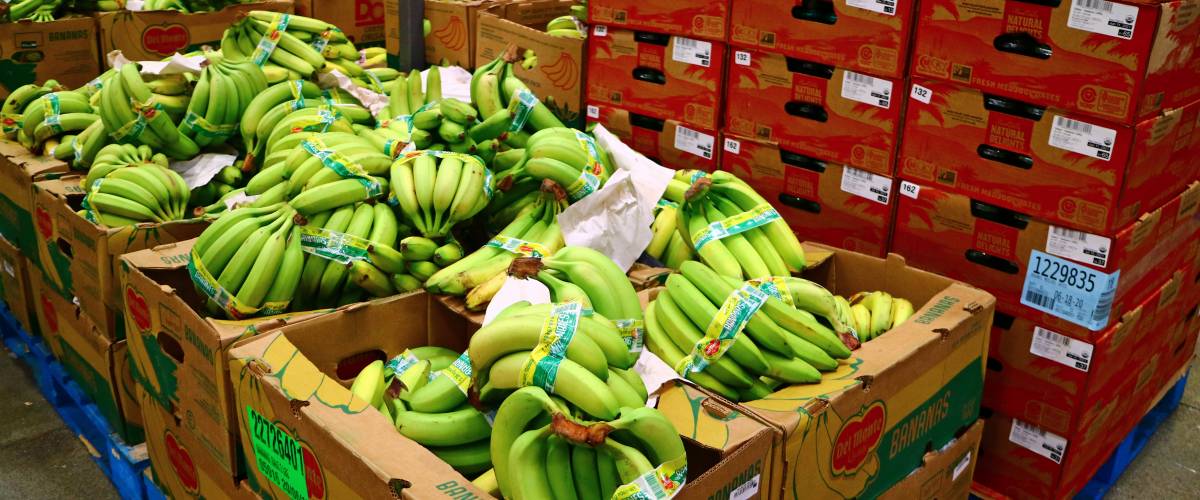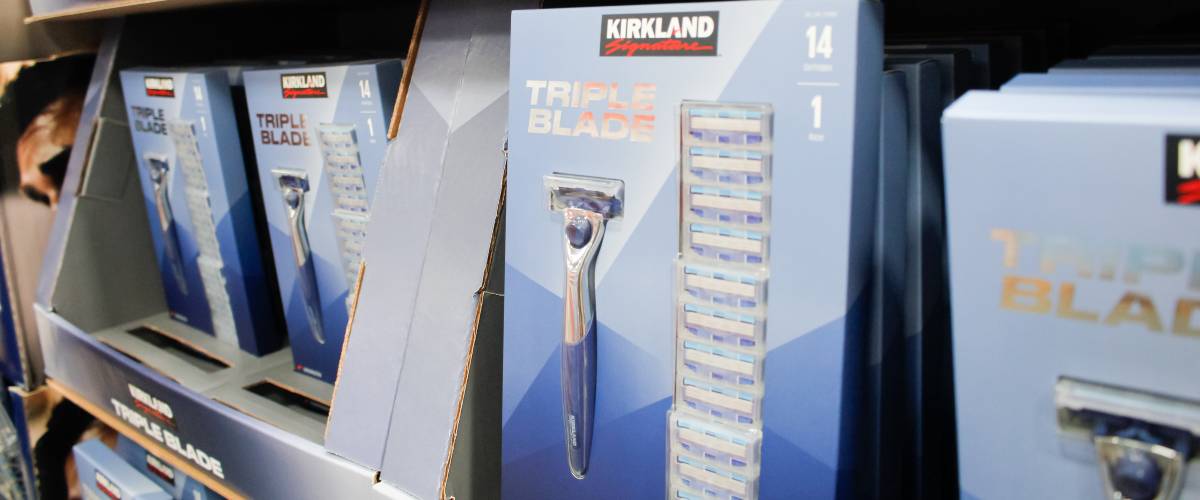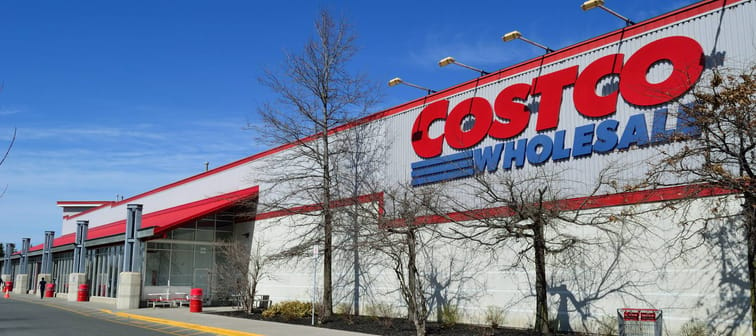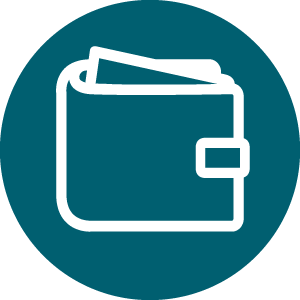1. Condiments

If you feel no dish is complete without a healthy squeeze of sauce, why not stock up with multiple bottles, jars or vats?
Well, your favorite dips and sauces might not stay fresh as long as you expected.
You can store ketchup in the back of your cabinet for about a year after you’ve bought it, but once your bottle is open, you have only six months before it starts to discolor or lose its flavor, according to Delish.
The shelf life of mayo is three to six months, but after you break the seal, start spreading. You’ll need to finish it within two months.
And your pickles should keep in the pantry for up to a year, but once you’ve opened the jar, you should eat them within one to three months.
Plus, will all those oversized containers fit in your fridge? Make sure you think that through before checking out at Costco.
2. Diapers

On average, newborns go through eight to 12 diapers a day, according to Parents.com.
If your brand holds 40 diapers per package, you could be running through several packs each week. So why wouldn’t Costco be the perfect place to stock up to avoid emergency runs to the drugstore?
If you do the math, it’s not actually the most affordable option. Amazon Prime members who sign up for a diaper subscription through Amazon Family save 20% and get free shipping. For size 1 diapers, that puts the cost of a jumbo Amazon Mama Bear pack down to $24, compared to $30 for a Kirkland pack — which actually contains fewer diapers.
But before you shell out for either bulk deal, remember: What happens when your baby has a growth spurt? Hoarding jumbo boxes of diapers, which are triple or quadruple the size of a standard box, runs the risk of leaving you with dozens of diapers your growing baby can’t use. What a waste.
3. Lesser used produce

Unless your family hoovers up those huge clamshells of fresh fruit and veg before they start to liquefy in your fridge, you may not be getting the deal you think you are on produce at Costco.
Food waste destroys about 30% to 40% of the food supply in the U.S., according to the United States Department of Agriculture.
Think about it: Are you really saving money on that bag of potatoes if you’re tossing out half of it later once they’ve sprouted eyes?
Instead, try buying only what you need when it’s in season — often at a bargain — through your local grocery store or farmer’s market. It may even encourage you to be more creative in the kitchen and learn how to make meals with unfamiliar ingredients.
4. Ground coffee

If you’re one of those “Don’t talk to me before I have my coffee” types, you might think that buying ground coffee in bulk will save you a few trips to the store or keep you from running out of the stuff unexpectedly.
Buying coffee in bulk will save money, but your cup of joe might not pack the same punch. Immediately after grinding coffee beans, they lose strength and flavor. In fact, within 15 minutes of being ground, beans lose up to 60% of their aroma, according to the blog Coffee Confidential.
Your best option is to buy whole beans and grind them yourself.
And guess what? You can pick up a cheap grinder on your next visit to Costco.
5. Name-brand clothing

If you love your Kirkland-brand essentials, we would never steer you in another direction. But name-brand clothing may not be a true bargain at Costco.
Investigations by Vox and other publications have found that most of the branded clothing you’ll find at warehouse, outlet and factory stores aren’t actually leftover inventory — they’re made specifically for those retailers using cheaper materials and shoddier workmanship.
It’s unclear whether that’s the case at Costco, specifically, if you want to take your chances. But Kyle James of the blog Rather Be Shopping suggests you’ll have better luck finding quality clothing at discount prices at TJ Maxx, Ross or Marshalls.
6. Printer paper

Do you really need 5,000 sheets of paper? Unless you’re running a print shop out of your garage, you won't need the savings per page that come from buying a full case.
You can buy a more manageable 500 sheets of paper on Amazon for just $5, which works out to a penny per page. Similar sized packages sell for considerably more at Costco.
And if you’re watching for sales or searching for coupons, you can generally find deals on paper at Staples, Office Depot or even Walmart.
The same principle applies for any school or office supplies.
7. Mattresses

Look, you spend a third of your life in bed: Is your mattress really something you want to cheap out on?
Mattresses come in many variations — soft or firm, memory foam or inner spring, standard or hypoallergenic materials — but buying at Costco means your only choices are what they have on hand that day.
If you go to a specialty mattress store or order online, you can often find a promotion or sale to save some cash.
Doing a little research could help you find as good a deal as you’d find at Costco for a better fit. For instance, if you wait until Memorial Day or May (before new models are released in June), you can generally score a great price, according to the site Sleep Advisor.
More: When is the best time to buy a mattress?
8. Laundry detergent

No one likes hauling those heavy jugs of laundry detergent home from the store. So if you can save a few bucks and deal with a single massive bottle of detergent once a year, why wouldn’t you?
Well, the problem is that detergent has a shelf life. After about six months of opening a new bottle, it will start to lose its effectiveness. According to Good Housekeeping, using detergent past its prime might not get your clothes as clean as fresher detergent would.
Unless you run loads of laundry every day, consider waiting for detergent to go on sale at a different retailer.
9. Personal care products

When it comes to beauty and personal care products, the clock starts ticking the second you open them.
While they will keep at room temperature for a while, as soon as air hits your product it begins to degrade, according to Ni’Kita Wilson, a cosmetic chemist at Cosmetech Laboratories, as told to Good Housekeeping.
Buying shampoo or lotion in huge quantities means you’ll be in a race against the clock to finish your bottles and tubes.
Plus, you can often find deals on these items at the drugstore or smaller-format retailers.
10. Barbecues

With summer coming, you might already be planning your outdoor oasis. And how great is it that Costco has everything you need? Patio furniture? Check. Landscaping supplies? Check. Lawn and garden decor? Check, check.
And while Costco also carries a selection of barbecue grills, you’ll want to proceed with caution if that item is on your wish list.
Why? Not all grills are created equal. Take the Urban Islands 4-Burner by Bull, for example.
According to Consumer Reports, this Costco exclusive is not only more expensive than other grills they’ve reviewed, it’s also much less effective: “It’s particularly bad at maintaining even heat at high temperatures, a must for perfectly seared steaks.”
To avoid paying more for a grill that doesn’t perform, do a little research on your end or ask an experienced salesperson at a specialty store to recommend a grill that meets your needs and budget. Of course, if Costco happens to sell that grill at a discount price, go for it.
11. Cooking oil

Unless every day is fry-day, you probably won’t make it to the bottom of those jumbo containers of cooking oil before they start to go bad.
But don’t worry, you’ll definitely know if your oil has started to turn — if not by its smell, then by its bitter, sour or stale taste.
To avoid rancid oil, the North American Olive Oil Association suggests using olive oil within three months of opening a container. And the U.S. Department of Agriculture says you can keep unopened containers of cooking oil on the shelf for four months.
12. Flour

Making your own bread was a huge fad in the early days of the pandemic. If you bought a massive bag back then that you didn’t finish, it’s already gone bad.
That’s right: Within about eight months (depending on the type of flour you use), your ground-up grains will start to smell off, taste rancid or change color.
What’s more, if you’re buying gluten-free flours such as almond or coconut flours, these products are often high in oil, which can make them even more prone to spoiling than their white flour counterparts.
Unless you’re cooking with flour every day, you’re much better off buying smaller bags when you need them. And to keep that flour safe, Epicurious recommends storing it in an airtight container in a cool, dry place.
13. Spices

Just like ground coffee, your spices will start to lose flavor over time. Bon Appetit recommends keeping ground spices for only three months.
Do you think you’ll be able to use up a 10-ounce jar of cinnamon in a single season? Unless you’re consistently baking for a high-school football team, you’re probably not going to make it to the bottom of the jar before it starts to lose potency.
While you may save some money on a per-ounce basis with Costco spices, you’ll likely pay the price later in flavor.
14. Books

Warehouse stores like Costco offer a one-stop shopping experience. And no doubt you get a small thrill crossing everything off your weekend to-do list in just one trip.
But for the avid reader, we suggest avoiding those tables piled high with books.
Not only can you find equally good deals online, such as through Amazon, you also aren’t likely to find new releases or titles from up-and-coming authors.
Instead, you’ll mostly find tried-and-true bestsellers the company knows it can move fast, according to NBC’s Today. Think John Grisham or Danielle Steele.
If you really want to find the best prices on books, why not head to your local library? As they say, the best things in life are free.
15. Eggs

Gaston from Beauty and the Beast famously eats five dozen eggs every morning. If you don't come close, you may end up in a time and space crunch by shopping at Costco.
The Food and Drug Administration suggests using eggs within three weeks — and storing them in the refrigerator.
Residents of many other countries keep their eggs on the counter, but in the United States, eggs must be thoroughly washed prior to sale. That cleans off potential contaminants but also leaves the shells porous and prone to spoiling faster.
Keep that in mind when you’re adding that carton containing two, three or even five dozen eggs to your cart. How fast can you eat, and how much fridge space can you give up?
16. New-to-you products

Whether the flashy packaging or snazzy brand name has you intrigued, it’s never a great idea to invest in multiple quarts of kombucha if you’ve never tried the fermented beverage.
The same goes for snacks, lotions, frozen foods or even junk food.
Unless you’ve had a chance to sample the goods, you never know when you may have a bad reaction to a moisturizer or food you’ve never tried. Then you’d be stuck with a massive amount of the offending product and out that money.
When you want to try something new, make less of an investment by buying a smaller amount at another store. And if it’s a hit with your family, you can always stock up next time you’re at Costco.
17. Jumbo-sized packages you have no space to store

Let’s be real: If you’re having a hard time fitting your entire shopping cart’s worth of supplies into your car, are you going to be able to find a place for everything in your kitchen?
And will those jumbo containers of nuts even fit on the shelves of your cabinets?
Unless you have an extra pantry or room in the garage, you might have to resort to hiding extra rolls of toilet paper underneath your bed or behind the couch.
For your own peace of mind, and in the pursuit of an uncluttered home, it may be worth spending a few extra dollars — or making one extra shopping trip each month — to avoid worrying about where to store all your purchases.
18. Bicycles

When you’re in the market for a new bike, you may be thrilled to find an option at Costco that would save you a few hundred dollars compared to your local bike shop.
But the problem with buying a bike from Costco is that employees are not necessarily bike specialists. Costco doesn’t formally train its staff to assemble or answer more complicated questions about bikes.
As one bike expert noted on his blog, MtnBikeRiders, sometimes employees even install parts upside down, which can be dangerous.
If you want to buy a new bike, your best (and safest) option is to go to a specialized shop and pay a little more.
19. Running shoes

Looking to add a new pair of sneakers to your fitness gear? We suggest you steer clear of the shoe aisle.
You might have spotted name-brand running shoes at Costco. But they may not be exactly what they appear to be.
As some users on a RedFlagDeals forum have noted, the prices on Costco runners are low because the shoes appear to be cheaply made versions of high-end brands, like you would see in a factory outlet store.
On top of that, finding the right shoe for your needs can help you avoid injuries, and that’s not something you’re guaranteed to find at Costco.
20. Canned goods

It’s not the shelf life you have to worry about here. According to the U.S. Department of Agriculture, depending on their contents, canned foods should last between 18 months to two to five years.
When it comes to canned goods, you can simply find better deals at your local supermarket, especially if you clip coupons. Don’t forget to check store flyers or your local paper for coupons you can print or cut out.
And on top of that, coupon apps offer you rewards, discounts and even gift cards.
With coupons on top of coupons, you’re much more likely to find the best savings on canned goods at the store around the corner than at Costco.
21. Soda

While you could probably buy a lifetime’s supply of your favorite fizzy beverage at Costco, should you?
Not necessarily. You may not be getting the discount you think you are by buying in bulk.
Because soda often goes on sale at regular retailers, you may end up being better off taking advantage of a coupon or promotion at other stores. (And don’t forget to use your coupon app, too.)
Just ask Mindi Cherry from the Moms Need to Know blog. According to Mindi, especially in the summer months, buyers can easily find a 12-pack of Coca-Cola for $2.50, which is a much better price than $10 for 36 cans at Costco.
22. Toilet paper

Costco’s Kirkland toilet paper comes at an enticing price of $19.99 for 30 rolls. Yes, the paper is cheap, but it comes at a cost.
Former Costco employee Tess Robison shared with Insider that the Kirkland toilet paper is one of the few things the wholesaler can’t do just as good or better than the larger-name brands.
When it comes to toilet paper, if the durability isn’t there, you’re going to end up using more paper every time and frittering away all those savings. Instead, spend a little more on some quality paper and only use what you need.
23. Paper towels

Just like with Kirkland’s toilet paper, the warehouse’s store-branded paper towel falls apart under pressure.
Employees at Clarks ran a test on a number of different paper towel brands, including Kirkland’s, by pouring a cup of water on a sheet and testing how many quarters it could hold.
Compared to Bounty’s whopping 120 and Viva’s 88, Kirkland buckled under just 68 quarters.
If you have to use multiple sheets of paper to handle spills or other types of cleanup, these paper towels aren’t the deal you think they are.
However, Mashed.com says Costco is the place to buy your name-brand paper towel, citing an old study from Business Insider that showed prices on those products at Costco were nearly one-third cheaper than at Amazon.
24. Name-brand alcohol

There’s long been a rumor online that the Kirkland-brand vodka is actually Grey Goose with a different label. While Grey Goose and its parent company have denied that, the quality and taste of the alcohol are comparable.
In fact, reviewers of the Kirkland-brand liquor have long praised its quality and flavor. And some samplers even rated the Kirkland brand French vodka higher in a blind taste test compared to Grey Goose.
So when it comes time to stock up your liquor cabinet, look for the Kirkland label rather than big names. You shouldn’t be able to taste the difference in your cocktails, but you will definitely notice the difference in your bank account.
More: The big brands hidden behind Costco's Kirkland label
25. Electronics

Just like with its name-brand clothing, the electronic items you see at Costco may not be
Savings expert Andrea Woroch told Best Life that because some manufacturers partner with warehouse stores to create exclusive versions of their popular electronics, like TVs or laptops, they may not have all the features you’re looking for.
Even if you’ve been doing research on specific televisions and you happen to spot it in the electronics aisle at Costco, you’ll want to make sure it has all the features you’re looking for as these warehouse models are often missing key features, Woroch says.
She goes on to suggest that before you pull the trigger, you should do your due diligence to make sure you can’t get a better deal on your device elsewhere, like a refurbished television at Best Buy.
And keep your eyes peeled for coupons or sales that can help you save even more while ensuring you get exactly what you’re looking for.
26. Disposable razors

Where can you go wrong by buying disposable razors in bulk? They don’t take up much space and this is one purchase you know won’t go bad before you make your way through the box.
The problem with Costco’s razors is that you can generally find a cheaper option at a big-box retailer or drugstore when they go on sale or with a little help from a manufacturer’s coupon, TheKrazyCouponLady.com’s Joanie Demer told Kiplinger.
Kiplinger put Demer’s claims to the test by comparing the warehouse prices of disposable BIC razors to the prices at Walmart. While the razors initially cost more at Walmart, employees were able to find coupons through the manufacturer that knocked down the price to $4 less.



